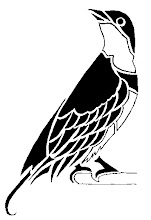
As the title says... and it's a tough thing to think about, of course, because of the way that the term "art" has gotten bandied about in its lifetime. Maybe it would be useful to go back to the ancient Latin term from which we get our word "art," namely "ars," which meant essentially "method" or "technique" or even "theory." It was so strongly connected to the idea of technique, in fact, that the word was frequently used to mean something like "handbook," as in the phrase "ars rhetorica," rhetorical handbook (containing all the tricks you need to speak successfully in public), or "ars amatoria," a handbook of love.
Even though "art" does not bear this meaning for us in English, it's definitely worth pondering the origin in this case: you could say that the ancient Romans, at least, thought of "technique" as being essential in human-made items. Stretching a point, you might even want to translate "ars" as "craft" in some cases. Carpentry, for instance, is not recognized as a fine art, but it is certainly an "ars" in the Roman sense.
Looking toward the Greek world, one finds a similar phenomenon: the ancient Greek word that "ars" translates is "techne," very literally "technique" or "method," or "craft." We get our words "technique," "technical," and "technology" from Greek "techne," as fans of Robert Pirsig's Zen and the Art of Motorcycle Maintenance are only too well aware.
Of course, just because the Greeks and Romans said a thing was something, doesn't mean we need to think it's the same thing. That would be a big fallacy. And yet, they may have had a point in this case. The modern realm of "fine art," with its underpinnings of refined and honed style, gallery exhibitions, incredibly valuable oil paintings and sculptures, and (let's face it) high finance and aristocracy, as has been pointed out many times but perhaps almost first by John Berger in his book Ways of Seeing (1972), was created during the European Renaissance, and embodies the beginnings of capitalism. Berger puts it this way: "[A] way of seeing the world, which was ultimately determined by new attitudes to property and exchange, found its visual expression in the oil painting, and could not have found it in any other visual art form. Oil painting did to appearances what capital did to social relations. It reduced everything to the equality of objects. Everything became exchangeable because everything became a commodity." (Berger 87) Berger argued that intense realism, and in particular the attempt to capture on canvass the surface of the people and objects represented, was a sort of by product of the obsession of the ruling classes from 1500 on with their own possessions - and a sort of culmination of that obsession. For "To have a thing painted and put on a canvas is not unlike buying it and putting it in your house." (Berger 83)
Robert Henri (né Robert Henry Cozad, 1865-1929, http://en.wikipedia.org/wiki/Robert_Henri), the famous anarchist artist, teacher of Edward Hopper, and leading light of the Ashcan School who got his artistic start in Atlantic City, New Jersey, reacted to the whole idea of this tradition succinctly: "What we need is more sense of the wonder of life and less of this business of picture-making!" What he meant was, I think, simply that all art is craft: that Morris was right about human nature, that human nature expresses itself in the creation of all kinds of beautiful works by hand, that the term "Great Masters" is at best questionable and at worst a kind of propaganda in favor of the landed aristocracy and the upper classes generally, and most of all that all human creation of beauty based in a "sense of the wonder of life" was in fact good art. It stood apart from the market, and value as determined by the capitalist system. It could even challenge that system, and with some luck overturn it and replace it with a set of systematic and teachable principles that anyone and everyone could and should grasp, use, and reorganize and reform, in order to realize their own artistic potential. Grassroots craft, freed from its capitalist roots, could awaken and change the entire world.

"What we need is more sense of the wonder of life and less of this business of picture-making!" ... brilliant!
ReplyDeleteHello,
ReplyDeleteI just gave you the One Lovely Blog Award!
Go to my blog for details!
http://simagjewelry.blogspot.com/